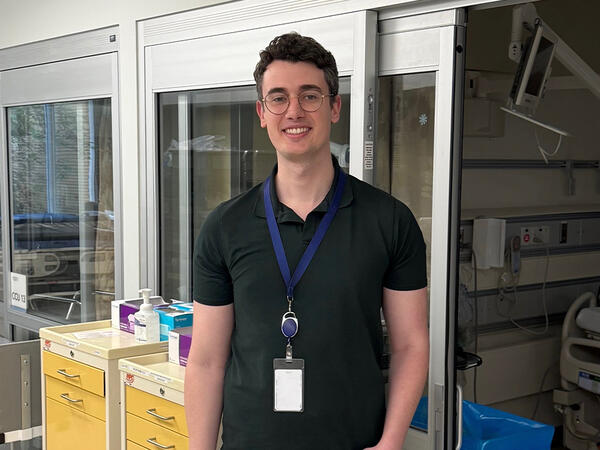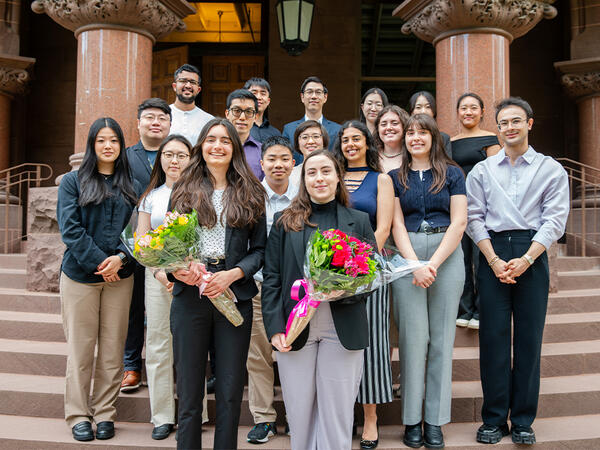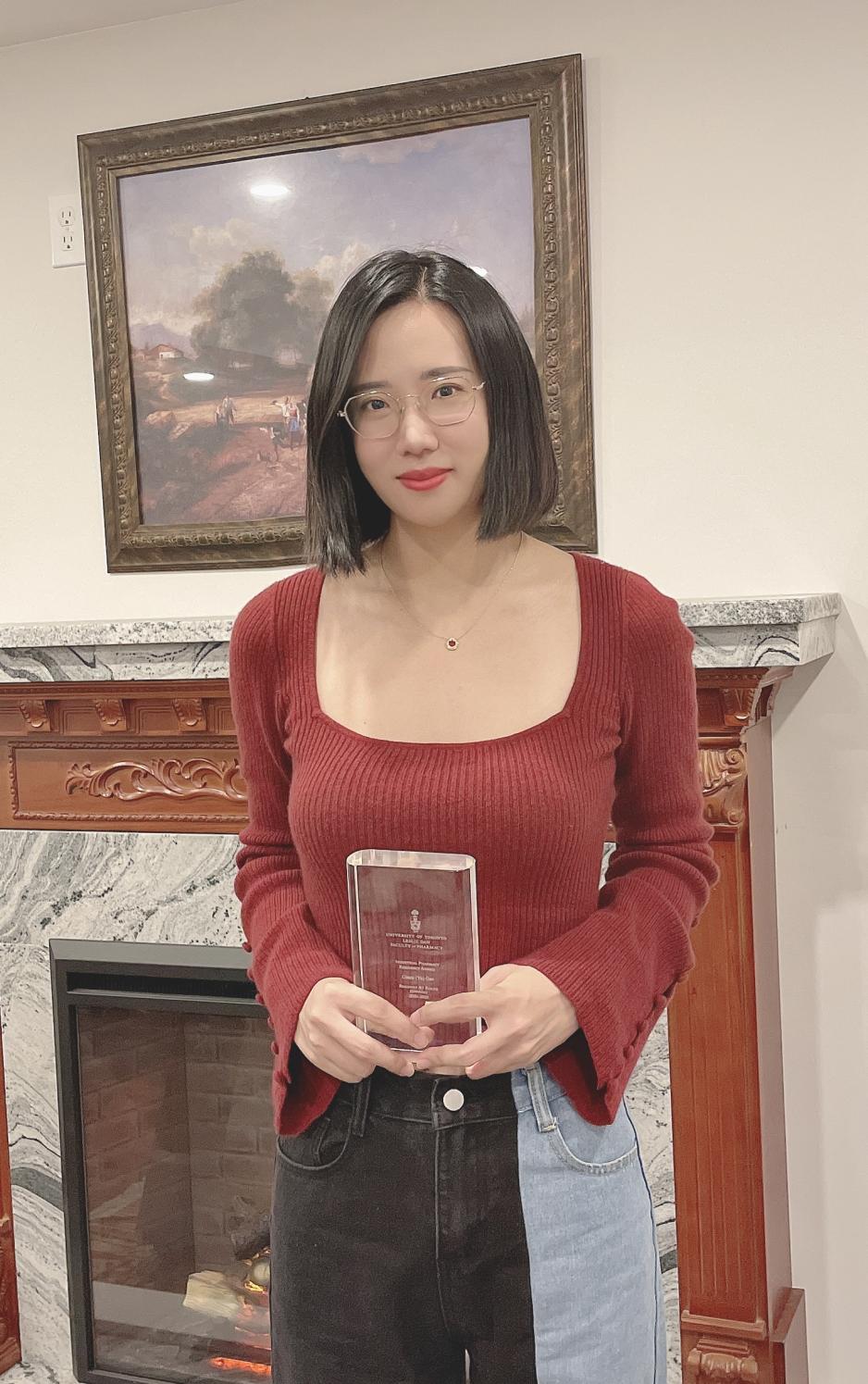Grace Gao receives Industrial Pharmacy Residency Program Award to recognize residency leadership and research excellence
A residency in industrial pharmacy gave Grace Gao, a graduate of U of T’s Leslie Dan Faculty of Pharmacy, a greater appreciation for the importance of interdisciplinary collaboration in the pharmaceutical industry through both her day-to-day role and her residency research project. Gao recently received the 2020-2021 Industrial Pharmacy Residency Program Award, which recognizes a resident who has demonstrated exceptional leadership and completed a high-quality major project during the residency.
“The residency really helped me grow the mindset of team effort and the importance of thinking about which cross-functional team members need to be involved in discussions and decisions,” says Gao. “In industry, there is rarely a task that is not a group effort, so everything you do has an impact down the line. We always have to think about the potential impacts of the decisions we’re making on other functions and who is involved in these decisions.”
Gao became interested in the pharmaceutical industry after enrolling in a related third-year elective and seeing the potential greater benefit that pharmacists can bring to patients in the industry setting through delivering innovative medicines. After graduating with a Doctor of Pharmacy (PharmD) degree in 2020, she then started a one-year residency at Roche in September 2020.
In Gao’s role as project manager in the regulatory affairs department, she worked with cross-functional teams to manage regulatory considerations in drug development, including leading health authority interactions and executing regulatory filings. She was able to learn the regulatory process for new drugs in the US and gained valuable experience working with scientists and experts across the company to prepare drug applications. She says that her pharmacy education was essential to creating the link between regulatory and clinical perspectives.
“Coming from a pharmacist background allowed me to think about issues from a clinician’s patient-oriented point of view,” says Gao. “This helps me better facilitate discussions with my team to make sure that our products are delivering optimal benefits to patients.”
Although Gao started her residency during the first year of the COVID-19 pandemic and was working remotely, she says that she felt well-supported at Roche and had ample opportunities to learn from her mentor and take on leadership roles, including the opportunity to co-lead a forum on Chinese regulatory strategy. She even found ways to network with other residents remotely, helping to found the Roche Canada Healthcare Professionals Network and organize a virtual open house for future residents at Roche.
Major project reviewed new drug submission process
Gao’s major project also relied heavily on cross-functional collaboration. With the support of her supervisor, Allison Guy, Gao described the expanded scope of the Real-Time Oncology Review (RTOR) pilot program and Roche’s experience with this program.
Regulatory applications typically include many different documents submitted together as one large package. The FDA’s RTOR program allows drug companies to submit sections of the application as they are completed on a rolling basis, which helps to enhance review efficiency. The pilot program was initially created for relatively simple supplemental applications but recently expanded to include more complicated submissions for new molecules.
As part of her project, Gao interviewed colleagues who had worked on previous RTOR submissions to gather their feedback and learnings. From these interviews, she reported the important considerations that companies should think about before planning RTOR submissions. RTOR applications, though not guaranteed to be faster than traditional applications, did enable shorter approval time and allowed innovative medications that address unmet medical needs to become available to patients a little sooner; however, the RTOR process required tremendous amount of additional staff resources and thorough planning early on. The full results of the project were recently published in Therapeutic Innovation and Regulatory Science.
At the end of her residency in August 2021, Gao was offered a fulltime role in regulatory affairs at Roche and is currently a project manager working largely in the same capacity as her residency. She says receiving the Industrial Pharmacy Residency Program Award is an honour not just for her, but for everyone who collaborated on her research project.
“My residency project involved a lot of my own research but also included the combined experience, hard work and insight of colleagues who worked on past RTOR filings,” says Gao. “This award is a testimony to this collaboration and a recognition of research in regulatory affairs, and I was really happy it was acknowledged in this way.”
More News
Image

Pharmacy alum’s research shows how full-scope practice improves cancer care
Honoured with a national award, Adrian de Boer says his residency experience was a powerful reminder that he's making a meaningful change to the pharmacy profession.
Read More
Image

Pharmacy alum passionate about helping community pharmacists practice to full scope
As a pharmacy leader at Rexall, Heidi Wittke uses frontline experience to lead initiatives that improve patient care
Read More
Image

Bridging Research and Industry: GRIP 2025 highlights innovation and real-world impact
Over 200 attendees from academia, healthcare, and industry gathered last week for the 2025 GRIP symposium, celebrating the depth and diversity of graduate student research.
Read More
